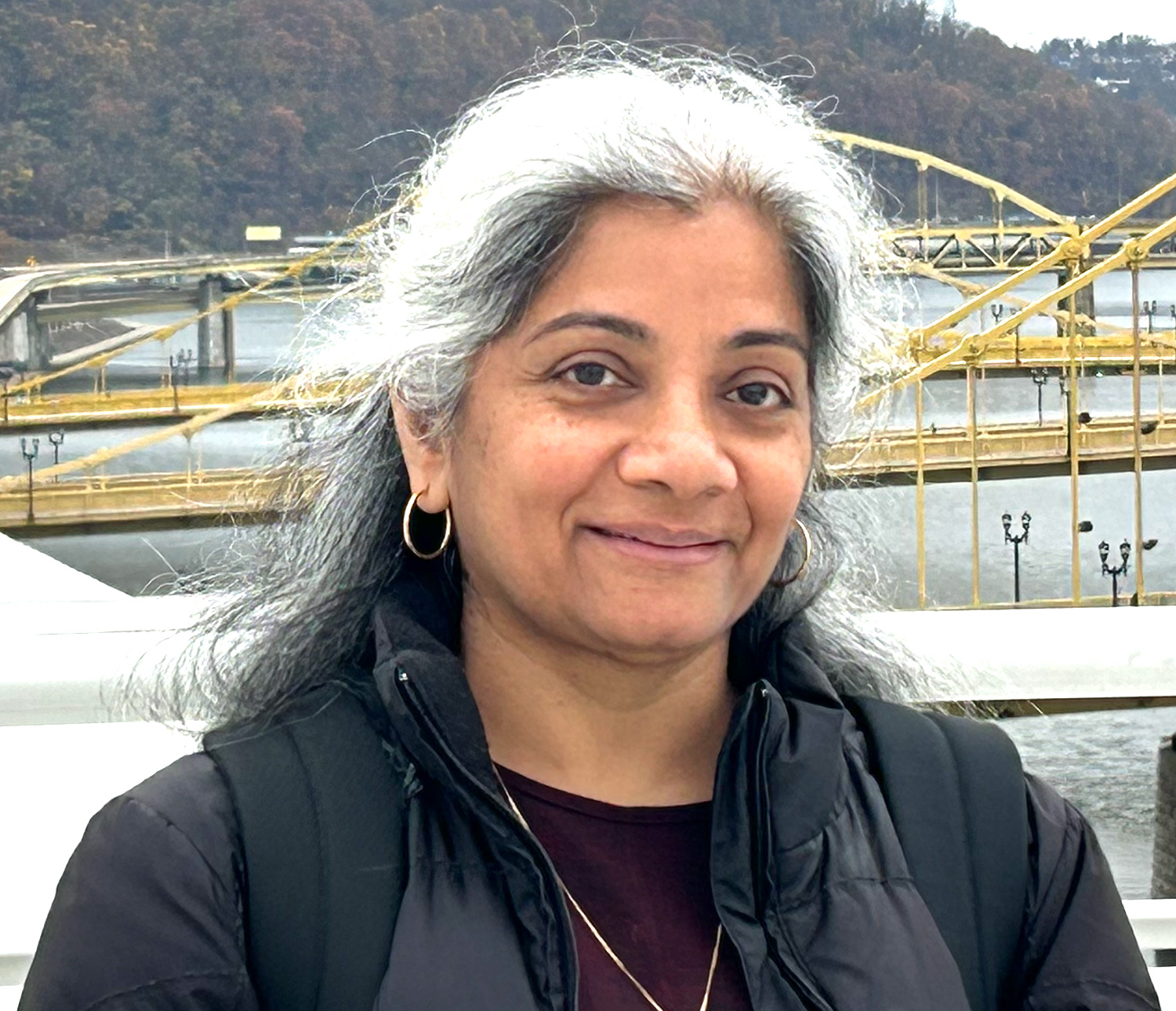Dr. Moorthy Showcases Student-Faculty Collaboration Strategies at Mid-Atlantic Teaching Faculty Alliance Retreat

Dr. Sudha Moorthy, assistant professor of Biology, led a workshop at the second annual Off the Tenure Track Retreat for the Mid-Atlantic Teaching Faculty Alliance, exploring the power of student feedback in shaping more inclusive and effective classroom experiences.
Taking place at Temple University’s Science Education & Research Center on June 18, the workshop examined Moorthy’s work with Arcadia’s Center for Teaching, Learning, and Mentoring (CTLM) Title III STEM Inclusive Excellence in Pedagogy cohort and Student Pedagogical Consultant (SPC) program. This background informed discussions on how to incorporate student feedback in classrooms to provide more successful learning experiences for all students.
“I just tried to mimic the classroom experience,” Moorthy said of her workshop design. Using the interactive tool Slido, she invited real-time audience feedback during the session, which she then used to shape the discussion.
“I talked about the design or the layout of my course, and then I said, ‘Okay, here’s the question: Do you think assessments of this kind would work for this course?’ And then I had everybody’s feedback come in, which everybody can see on the screen.
“There are not a lot of places that actually, actively ask for student feedback and actually actively use it,” continued Moorthy. “So one of the things that the program requires is for you to be tweaking your material constantly in real time. And all of us as instructors try to do it constantly, making real-time adjustments, but it’s a little challenging to do it. So my audience definitely realized that it’s a lot of work, a lot of running around that you have to do over the semester, but I would say it was positively received, and they’re aware of the amount of continuous work that needs to go into it.”
Moorthy’s work with the SPC program began in fall 2024, when she launched a new course on Cell and Molecular Biology. She partnered with Biology major Tevah Nesvisky ’26, who served as a student liaison and helped collect and communicate class-wide feedback.
“Because it was a new course, I figured it would be good to kind of have feedback from students continuously to see how it was working so that the students themselves don’t feel like they’re guinea pigs,” Moorthy said. “We felt that we were doing good. We were able to communicate better with the class, so we continued it this spring.”
One major improvement that emerged from the partnership involved restructuring exams based on Bloom’s Taxonomy, a hierarchical framework that organizes learning goals in levels based on complexity.
“We worked together to organize the questions into different categories so students come into the exam prepared for what they are going to see,” Moorthy said. “That definitely improved their exam experience.”
Moorthy emphasized that the model could be useful across disciplines and course structures.
“Student feedback can be used in all courses,” she said. “You can still work with the students to see how they felt about writing that paper. What were the aspects that they felt they didn’t have enough information from the instructor? Or, you know, when they were given feedback for their writing, did that come on time? Or how would they have designed an assignment like that?”
To Moorthy, the key to the success of the SPC program is the student liaison.
“I’ve seen that whether or not the student liaison is enrolled in the course, it seems to work,” she said. “The students are more comfortable talking to another student, and given that the class knows that the student liaison is there to address student concerns, they are encouraged and motivated to want to do it.”
She also acknowledged that not all instructors are immediately comfortable receiving student critiques.
“You know this is a subject that you know, and you’re putting in all your effort into making those lectures,” Moorthy said. “But the point is that you have to think about why and where they are coming from, and if you can reduce your nervousness or anxiety about getting that feedback, I think it can definitely improve the experience for everyone.”
Through the SPC program, Moorthy saw the impact student feedback can have in the classroom, while also enjoying the experience of working one-on-one with Nesvisky.
“Oh, I loved it. I think it’s one way of showing us the power of co-creation. Students have so much to say about how to take their own experience forward, and to not give it enough weight would not be doing them justice. Subconsciously, I’ve been using student feedback for a long time, and this work has just made me realize how powerful a tool it really is and how much more we can exploit it for everybody’s benefit.”

